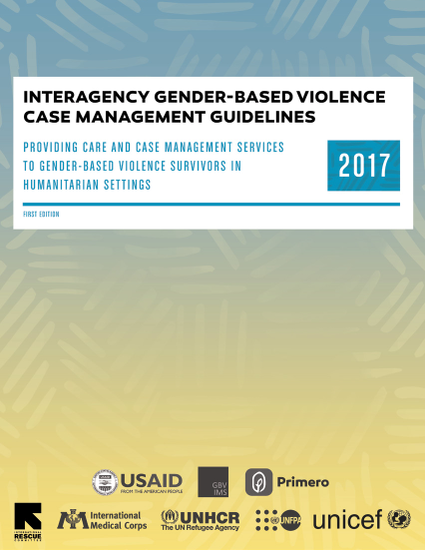
In humanitarian settings, responding to sexual violence has been a priority because conflict-related violence, in particular rape as a tactic of war, has received international attention. However, there is growing recognition that populations affected by conflict and natural disaster experience various forms of GBV during crisis and displacement, and during and following return. In particular, intimate partner violence is increasingly recognized as a critical concern in humanitarian settings. Other forms of violence particular to adolescent girls have also emerged as especially necessary to address. GBV in all of its forms has tremendous physical, emotional and social consequences for the person victimized by it, who is often referred to as a ‘survivor.’ Survivors of GBV have the right to receive quality, compassionate care and support that addresses the harmful consequences of violence in order to help them heal and recover. This resource aims to set standards for quality, compassionate care for GBV survivors in humanitarian settings, with particular focus on the provision of case management services. It builds upon and should be used in conjunction with other GBV response resources, such as the Caring for Survivors of Sexual Violence in Emergencies Training Package and the Caring for Child Survivors of Sexual Abuse: Guidelines for health and psychosocial service providers in humanitarian settings.